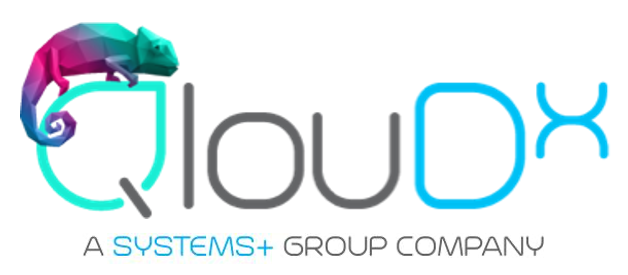My Journey to Seven AWS Certifications

I recently achieved my seventh AWS certification! These include all foundational, associate, and professional certifications, as well as one specialty certification.
In this article, I wish to share my journey, and what I have learned along the way in terms of how to prepare for certifications, what is the right mindset/attitude to have, what study resources were most valuable for me, and at a more philosophical level, how to always have “the big picture” at the back of your mind, and how best to structure your learning based on the way your mind works!
A Career in AWS
AWS is vast! You can build your entire career in it! No matter how much of it you learn, there is always more, and it’s constantly evolving, so there’s always something new coming up every week.
Once you’ve been in the industry for a while, tried out many of the roles in IT, you might want to develop an expertise in something specific, something that comes naturally to you, something you really enjoy doing. If that is AWS for you, you’ve come to the right place!
Certifications are an essential part of your AWS career. If you’re a fan of IT certifications in general, you need no convincing to pursue AWS certifications.
If on the other hand, you’re the kind who thinks that certifications don’t matter, only real-world experience matters, certification exams do not and cannot measure your real-world performance, all I would say to you is “just do it anyway. 😁”
- Even if you hate the concept of certifications with all your heart, think of them as negligible blips on the long journey that is your multi-decade AWS career.
- Even if you don’t like certifications, your current and future employers do! Certifications are the only way they have to measure your AWS expertise without interviewing you for hours on end.
- And finally, if you are being honest about wanting to learn more of AWS, wouldn’t you yourself naturally seek out ways to “test” your expertise? One way to do that is to try out certification exams.
- Moreover, once you try out a few of these exams, once you realize how close to real-world requirements the questions really are, you might even change your entire attitude towards certifications.
- And there’s more! With AWS introducing real hands-on labs in certification exams, there’s no better way to test your AWS know-how.
Side note: If you’re interested in knowing more about the labs in exams, here it is:
- You’ll basically be given a remote GUI connection to a VM running a browser with the AWS console.
- There will be a list of tasks to accomplish, which you can do using either the console or the AWS CLI.
- If you’ve ever given an Azure certification exam, these labs are pretty much like that.
- However, note that there are a few challenges to overcome with this “labs” portion of the exam. For example:
- When I was giving an Azure exam, I remember having to work around the lag in the system.
- My VM was most likely on the other side of the globe and so every time I moved the mouse or scrolled the page, it would take a few seconds for the “glitchy” UI to settle down.
- I eventually had to come up with creative ways to reduce the time I was wasting due to the screen lag, like always clicking the scroll bar instead of scrolling the mouse, so there’s only one screen update required instead of all the frames that the mouse’s smooth scroll causes.
Disclaimer: My knowledge of the labs in the exams listed above comes from Azure exams, this exam guide, and these sample questions. I haven’t yet given an AWS exam that included a lab.
Anyways, coming back to the topic at hand, hopefully by now I have convinced you that AWS certifications are truly worth it!
Looking at your long-term AWS career, don’t consider the run-up to certification exams as sprints, but rather as marathons. Don’t just cram for a few weeks and give the exam. Instead, think of it as a slow and steady marathon. Always keep an eye out for AWS-related info, irrespective of whether you’re currently preparing for a cert or not.
These could come from AWS official and unofficial third-party blogs, YouTube videos: reInvent, reInforce, tech talks, webinars, office hours, and third-party channels. There are also new content releases from online course providers: Cloud Academy, A Cloud Guru, Whiz Labs, Plural Sight, Tutorials Dojo: courses, targeted learning paths, weekly updates, exams and quizzes, hands-on labs, etc, etc, etc.
Okay, now that you have a general idea of where the study material comes from, let’s talk about “how” to study.
Details Matter!
If there is one lesson I’ve learned from all my certification preparations and the subsequent exams, it’s that details are the key to passing an exam.
In all my exams, there are at least a few questions where the difference between the right and wrong answer comes down to some minute detail of one or more AWS services included in the question. This could be a limitation of the service, a hard quota, or just the way it works.
It almost feels like to ONLY way to know EVERYTHING about a service is to read its documentation end-to-end, which is obviously true! But if you started out believing that taking an online course that guarantees to make you pass the exam, is enough preparation for the exam, you’ll be in for a shock.
Yes, it’s very much possible to clear an exam by doing an online course, but it’s less than ideal. Ideally, you should aim for an examination experience wherein you can comfortably answer most questions, without any questions rattling you up or making you feel like “I had absolutely no idea something like this was even possible.”
Ideally, you should be making “educated guesses” for no more than 5 to 10 percent of the questions. The rest of the answers should come naturally to you. If you find yourself making blind guesses anywhere or start feeling increasingly uncomfortable as the exam progresses, it’s a clear sign that your preparation was lacking.
You might pass an exam even you blindly guessed half of it. That’s just the nature of MCQ-based exams without any negative marking. But what good is that? You’ll never have the confidence to authoritatively translate your knowledge into action in the real world.
I have tried many course materials online. Although I can’t name names here, I can confidently say that none of them go into the level of detail that the exam requires. At the very best, they can be 50 to 60 percent of your exam preparation, even if it’s just an associate-level exam that you’re currently pursuing.
It all comes down to this: the more you read, the more you know. Official and third-party blogs are especially good at a scenario-based perspective towards AWS. They are great ways to learn about new ways to assemble different AWS services together to build a solution.
Documentation is best to really, deeply know every nook and cranny of an AWS service, every obscure feature, every limitation, etc. Even though reading the documentation of an AWS service seems daunting at first, you can slowly, over time incorporate it into your lifestyle. Just like you read a novel from time to time for fun, you can do the same with the docs as well. 😀
The documentation is available in many formats. Find the one that suits your reading style best and use it as an accelerant for completing them ASAP. Especially with the docs being available as PDF and a Kindle ebook, it’s really easy to get into the habit of reading them, if you put your mind to it.
There is one last tip I’d like to share and this one is about remembering what you’ve learned.
Spaced Repetition Learning
Unless you have an eidetic/photographic memory, you WILL forget MOST of what you learn! The technique I found most helpful in retaining what I learn is “spaced repetition learning.”
Although the Wikipedia article on the subject isn’t fully applicable here, the basic premise of this learning technique is that in order to learn something factual and retain it in memory indefinitely, it’s best to repeat the learning at increasingly longer intervals.
For example, you learn something today, relearn it next week, and once again next month. This ensures maximum recall of the information ways down the line. But it need not be a plain repetition of the same study material.
For example, in AWS, say you finished an online course about AWS Lambda this week. Next week, you can do a few hands-on labs for the same. And in the subsequent weeks and months, you can watch YouTube videos on the subject, or read blogs or docs, based on your preference.
Conclusion
I hope this article has been helpful to you. Hopefully, there were at least a few actionable items you got from my journey to multiple AWS certifications. Have a great career in AWS and good luck with all your exams! 😇
About the Author ✍🏻

Harish KM is a Principal DevOps Engineer at QloudX. 👨🏻💻
With over a decade of industry experience as everything from a full-stack engineer to a cloud architect, Harish has built many world-class solutions for clients around the world! 👷🏻♂️
With over 20 certifications in cloud (AWS, Azure, GCP), containers (Kubernetes, Docker) & DevOps (Terraform, Ansible, Jenkins), Harish is an expert in a multitude of technologies. 📚
These days, his focus is on the fascinating world of DevOps & how it can transform the way we do things! 🚀





